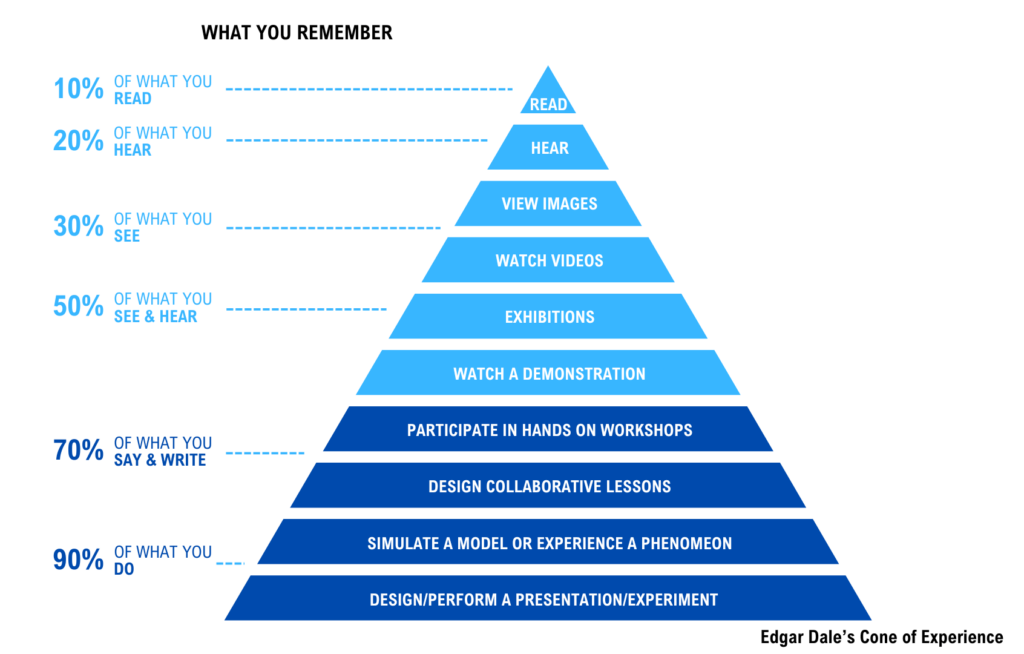November 20, 2023

Listening is one of the most important skills you can have. It helps to build relationships, solve problems, ensure understanding, and improve accuracy. How well you listen has a major impact on the quality of your relationships with other people and the effectiveness of your work.
According to Edgar Dale’s Cone of Experience we only remember around 20% what we hear. So that means when you talk to your manager, colleagues, customers, friends etc, you are paying attention to less than a quarter of the conversation!

Active listening is a technique that involves paying full attention to what the speaker is saying, both verbally and non-verbally. It goes beyond simply hearing the words that another person speaks but also seeking to understand the meaning and intent behind them.
It promotes mutual understanding and helps in avoiding misunderstandings and conflicts. When people feel heard and understood, it strengthens trust and rapport.
Active listening not only helps you to become a better listener, it helps to establish a positive work culture, and improve your ability to influence, persuade and negotiate!
1. Focus on the Speaker
Active listening requires the listener to give full attention to the speaker. It is important to eliminate all distractions such as phone notifications or thoughts that distract you from the speaker. Make sure to face the speaker, maintain eye contact. Nod occasionally, smile and use other facial expressions/body language to show that you’re engaged and listening.
2. Control your emotions and defer judgment
Active listening requires controlling emotions and avoiding becoming defensive or judgmental. Listening empathetically helps in understanding the speaker’s perspective.
3. Avoid Interrupting
Interrupting the speaker can show disrespect and lead to misunderstandings. It can also cause the speaker to lose their train of thought. Allow the speaker to finish their thought before responding. Only then, take your turn to express your thoughts or feelings.
4. Ask Questions
Asking open-ended questions and clarifying what the speaker has said demonstrates active listening. It helps in understanding their message and shows the speaker that you are genuinely interested in what they are saying. Use phrases like “Can you tell me more about that?” or “How did that make you feel?”
5. Repeat what you have heard
Summarizing what the speaker has said and repeating it back to them in your own words helps in confirming your understanding. It also shows the speaker that you are listening and can help in avoiding misunderstandings.